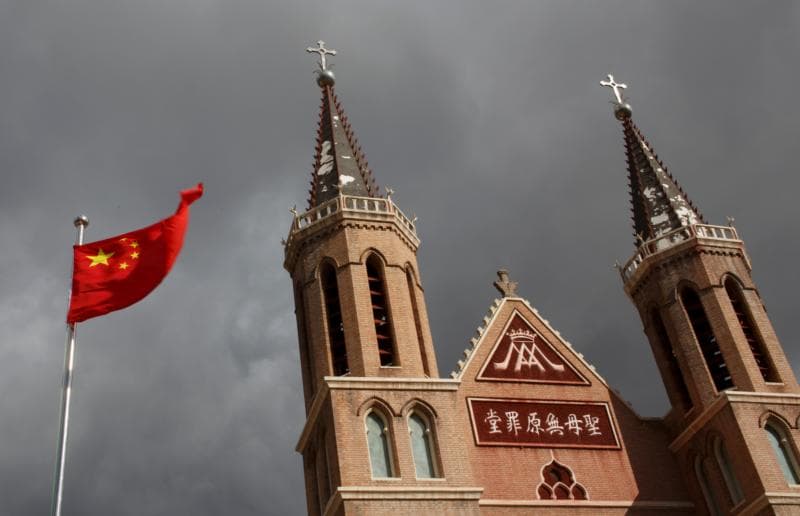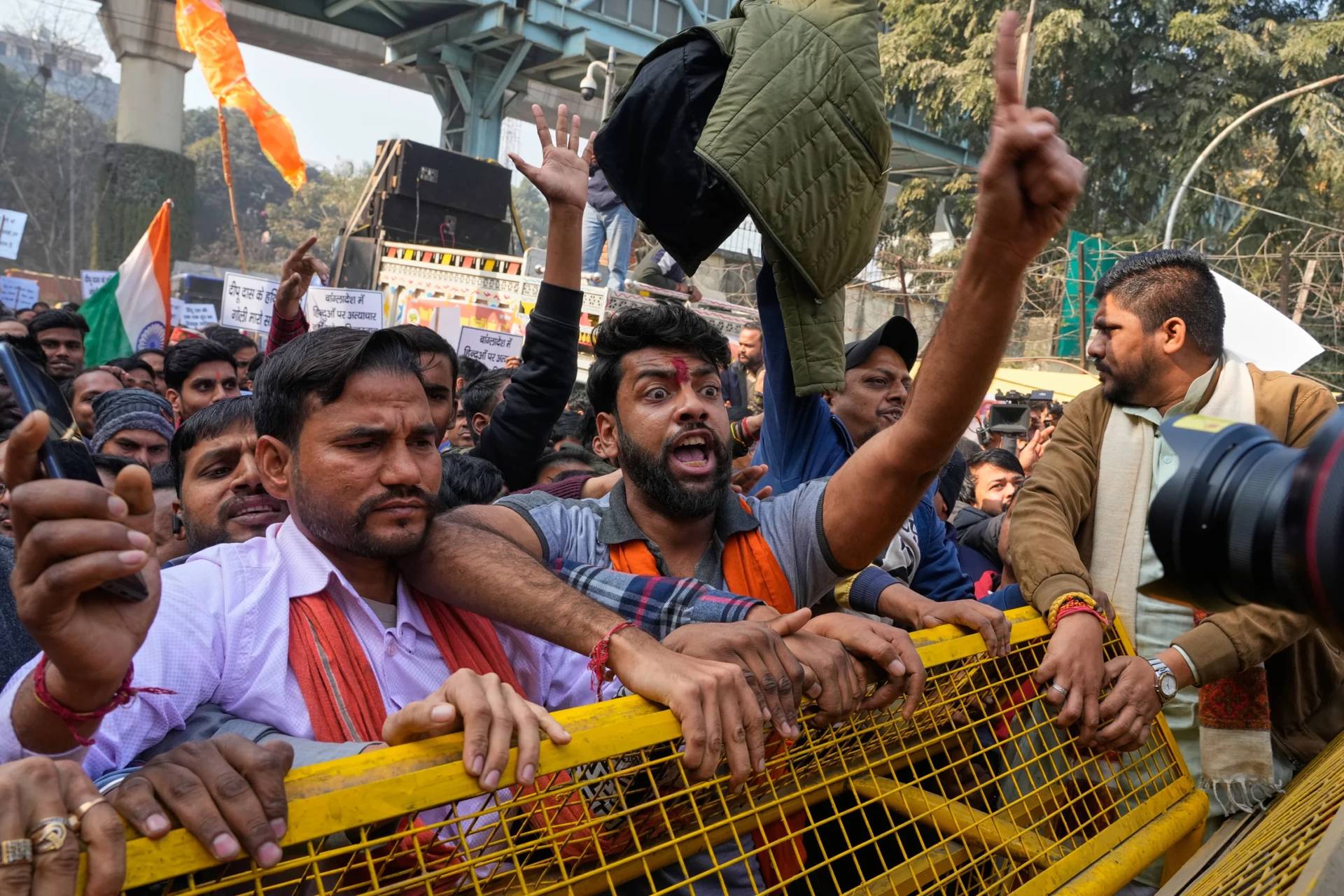ROME – As Chinese central authorities tighten their grip on Hong Kong and as the world continues to hear news of the alleged repression of the country’s Uighur Muslim population, Pope Francis is the target of increasing international pressure over his hesitancy to speak out.
This silence from one of the world’s most visible champions of the oppressed was the topic of a new article in Foreign Policy magazine penned by Benedict Rogers – the East Asia Team Leader at Christian Solidarity Worldwide and the founder of Hong Kong Watch – who says in the piece that he is a Catholic convert sympathetic to Francis, but who said he is confused about “how badly wrong” he believes the pope has handled China.
In the article, Rogers cites statements made by public figures such as Marie van der Zyl, president of the Board of Deputies of British Jews, who earlier this month wrote a letter to the Chinese ambassador in London comparing the situation of Uighur Muslims in China to the Holocaust.
Van der Zyl in her letter pointed to what she said are similarities between what is reportedly happening to the Uighurs and what happened in Nazi Germany: “People being forcibly loaded on to trains; beards of religious men being trimmed; women being sterilized; and the grim specter of concentration camps.”
Maajid Nawaz, a prominent British Muslim counterextremism activist, has gone on a hunger strike and promoting a parliamentary debate about imposing sanctions on China for its treatment of the Uighurs.
In a statement issued last week, Myanmar Cardinal Charles Bo of Yangon said that, “In China, Uighur Muslims are facing what amounts to some of the contemporary world’s worst mass atrocities and I urge the international community to investigate.”
In his piece, Rogers noted that so far, no major Muslim authority has come out in condemnation of the Uighur situation, nor has Archbishop Justin Welby of Canterbury, the head of the Anglican Communion. However, of all these, Rogers said “it is Francis’s silence that shocks” the most, as he is normally outspoken on behalf of the oppressed.
In the past, Francis has made several appeals on behalf of Rohingya Muslims in Myanmar. When he visited the country in December 2017, he pointedly avoided using the term “Rohingya” to avoid provoking his hosts. As soon as he arrived in Bangladesh for the next leg of his journey, however, he used the name when he met a group of Rohingya refugees.
He also didn’t shy away from angering Turkey by using the word “genocide” during a Mass in 2015 commemorating the 100th anniversary of a mass killing of Armenians by Turks in the early 20th century – an act which prompted Turkey to recall its ambassador for several months.
Pope Francis has repeatedly advocated for an end to conflicts in Syria, Yemen, Ukraine and Nigeria, and recently said he was “deeply pained” by Turkey’s decision to revert Istanbul’s famed Hagia Sophia museum into a mosque.
Yet in all his appeals, China has been conspicuous by its absence, despite increased attention over the Uighurs, the imposition of the new security law in Hong Kong, and ongoing harassment of Catholic clergy.
China has also come under fire in recent months for its record on human trafficking, particularly the trafficking of brides from neighboring countries and even as far as Africa.
In its 2020 Trafficking in Persons report, the U.S. State Department placed China on Tier 3, alongside South Sudan, North Korea, Syria, Afghanistan, Eritrea, Nicaragua, Venezuela and Russia, among others.
According to a recent report from Human Rights Watch titled, “Give Us a Baby and We’ll Let You Go: Trafficking of Kachin ‘Brides’ from Myanmar to China,” at least 226 women were trafficked from Myanmar to China in 2017, and that the Myanmar Department of Social Welfare assists some 100-200 trafficked women who return from China each year.
Earlier this year the Cambodian Interior Ministry reported that at least 112 women from the nation had been trafficked as brides to China in 2019.
Women’s rights activist Reggie Littlejohn, who founded the Women’s Rights Without Frontiers organization called the statistics on sexual slavery in China “heartbreaking.”
“Because of the fatal combination of son preference with a coercive low birth limit, baby girls have been selectively aborted, abandoned, and medically neglected,” she said, adding that, “The resulting collapse in the marriage market is perhaps the reason the Chinese government turns a blind eye to sex trafficking – and in some instances, even facilitates it.”
She also condemned China’s actions against Uighur Muslims in China’s Xinjiang province, saying the atrocities committed against them include “forced labor, forced abortion and involuntary sterilization.”
In his article, Rogers suggested that Pope Francis’s silence on China over all of these issues is the result of the 2018 agreement between the Vatican and Beijing on the appointment of bishops, the renewal of which is currently being negotiated.
Rogers echoes the critique of many of Francis’s critics, saying by making the deal, China has “bought” the pope’s silence, as he is unlikely to make any public statements in condemnation while negotiations are underway.
Many experts have argued that little has changed as a result of the agreement, that no imprisoned clergy have been released, but that in fact several have been either detained or arrested in the past two years.
In his article, Rogers argues that now is the time for Christian leaders such as Welby and Francis to “wake up” and review their positions up until this point.
“They need to signal clearly that they believe in the teachings of their faith – of human dignity, freedom, and justice – which matter more than any shady deals with brutal regimes. They need to abandon naivety. They need to say they won’t compromise when it comes to human life and dignity,” he said.
Pointing to Dietrich Bonhoeffer, a Protestant pastor who stood up to Adolf Hitler, Rogers insisted that Bonhoeffer got it right when he said that “Silence in the face of evil is itself evil … Not to speak is to speak. Not to act is to act.”
Follow Elise Ann Allen on Twitter: @eliseannallen














